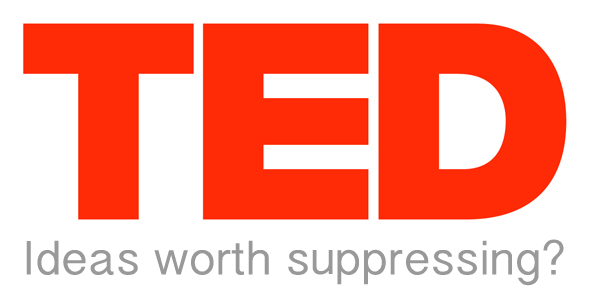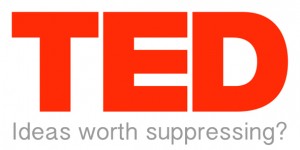Following popular outcry in response to TED’s censorship of recent TEDx talks by controversial thinkers Graham Hancock and Rupert Sheldrake, TED is forced to retract its position and put the talks back online in a “reserved” area of their website. By then news of the gaffe had already spread, and hundreds of people independently uploaded Hancock’s talk to their own YouTube channels
Why were these talks too controversial for TED? Judge for yourself. Just one of the many YouTube channels hosting the talk in defiance of TED is here:
https://www.youtube.com/watch?v=-b6-0yW7Iaw
where Hancock’s presentation may be viewed and has reached in excess of 27,000 views in ten days (his original presentation on the TEDx Youtube channel had reached 132,000 views before it was deleted by TED)
Graham Hancock presses for the full restitution of his and Rupert Sheldrake’s talks to the TEDx YouTube channel
The videos of the talks by Graham Hancock and Rupert Sheldrake, which were lauded at a recent TEDx conference in Whitechapel, London – ‘The War on Consciousness’ (Hancock) and ‘The Science Delusion’ (Sheldrake) – were removed Thursday 14 March from the TEDx Youtube channel, with TED citing “factual and scientific errors”, none of which they were subsequently able to substantiate, sparking a public internet outrage.
TED – the world renowned non-profit organisation devoted to ‘Ideas Worth Spreading,’ has hosted talks by many of the world’s most prestigious global thinkers, including Bill Gates, Richard Branson and Al Gore. TED talks have now garnered over 800 million views. At a TED conference, presenters speak for 18 minutes and their talks are made available as free inspiration on TED.com
Graham Hancock said on Facebook, following TED’s rebuttal:
“I want to put on record my immense appreciation and respect for the tremendous efforts made by so many members of my Facebook community to get this injustice righted, not only by their posts here but by their engagement on the TED website and the blog posts they have made there. I am touched and heartened, buoyed up and encouraged by this remarkable level of support and it is a sign of the times that our voice has been heard.
“TED continue to refuse to restore the talks to the original platform on which they appeared – the TEDx Youtube channel … I regard it as unfortunate in the extreme that all the conversations and comments that appeared there have been hidden along with the talks, and that those original links have been broken, and I will continue to press for the restitution of our talks to the TEDx Youtube channel separate from and in addition to the presence they now have on the TED blog pages.”
TED’s ‘TEDx’ platform provides a way for individuals or groups to organise local events around the world and so it was that Hancock and Sheldrake came to talk at a one-day TEDx conference in London’s Whitechapel on 12th January, an event dedicated to “Challenging Existing Paradigms”, along with ten other leading pioneers of what has become widely known as ‘The New Consciousness’ movement. TED’s management censored the talks against the expressed wishes of their own local organizers, which has added another layer to questions of TED’s growing sense of rigid orthodoxy. In an open letter on Friday (22nd March) the TEDx Whitechapel organisers called for TED to reinstall the talks to the TEDx Youtube channel, see Facebook post.
Hancock’s talk, The War on Consciousness, drew on cutting-edge academic research to suggest that the emergence into fully-modern human consciousness, less than 100,000 years ago, may have been triggered by shamanism and visionary plants like ayahuasca. He criticised our society’s rejection of visionary and altered states, and criminalisation of hallucinogens like ayahuasca, saying he believed they could be a crucial catalyst for the further positive evolution of human behaviour. By contrast, he highlighted our society’s alarmingly wide use of “anti-depressant” pills, “attention-deficit” pills, coffee, tea, alcohol and sugar to alter consciousness, around which industries are built, suggesting a society based on this consciousness was not working.
On Monday TED finally publicly retracted their actions, by crossing out their original misleading statements about Hancock and Sheldrake on the Blog Discussion page. They also opened up a new page for further discussion. On this page they honestly concede, that deluged with outraged messages, they: “…felt compelled to accelerate our blog post and used language that in retrospect was clumsy. We suggested that we were flagging the talks because of ‘factual errors’ but some of the specific examples we gave were less than convincing. Instead of the thoughtful conversation we had hoped for, we stirred up angry responses from the speakers and their supporters.”
The flood of comments in response to TED’s latest action – both on the TED blog post and on Facebook – highlight the power of the internet and social media for lobbying with large powerful organisations.


